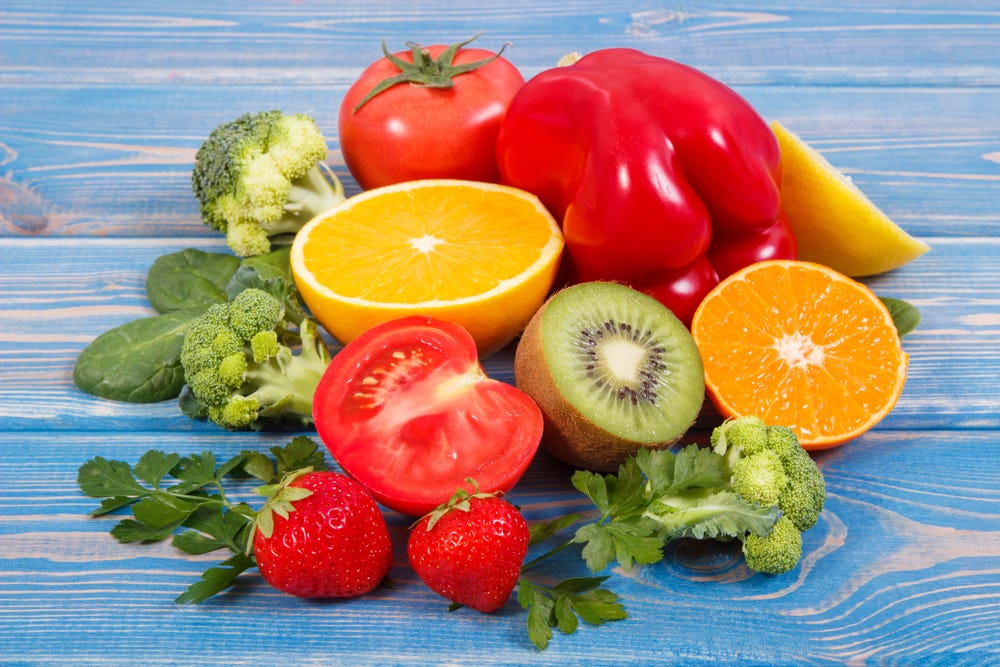Wintertime is traditionally known as cold and flu season and has always been a time to focus on immune health. With Omicron surging, immune health is even more top of mind. Since the start of COVID-19, food and beverage companies have focused on this by developing immunity boosting and immune health products.
The number one functional ingredient for immune health is Vitamin C (or ascorbic acid). Vitamin C is an essential vitamin, which means that the body cannot produce it on its own. So, obtaining Vitamin C from food or supplementation is essential for healthy functioning. Vitamin C is prevalent in many different foods like oranges, kale, red or yellow bell peppers, broccoli, Brussel sprouts, papaya, strawberries, pineapple, and kiwi. If these foods are not in the diet, supplementation is and easy alternative. Food and beverage companies love using this ingredient because it is cheap, well studied for multiple benefits (beyond immune health), safe to use, can easily be incorporated into a food and beverage product, and can sometimes be used as a clean label preservative.
When the FDA re-vamped the nutrition and supplement facts panel, it changed the daily value of Vitamin C from 60 milligrams to 90 milligrams. This signals the importance of consuming more of this essential vitamin. Vitamin C is also very safe. Even though the daily value is 90 milligrams, a person can easily consume 2 grams of Vitamin C without feeling any adverse effects. Vitamin C is also important in the adsorption of other minerals. When vitamin C is taken with iron or calcium, the body can adsorb those minerals more effectively. This is especially important for vegans as the diet generally lacks these minerals.
So, what exactly is Vitamin C? Essentially, it is an antioxidant that boosts the immune system. It does so in three different ways.
1) Vitamin C boosts the immune system by searching out “free radicals”, which are harmful molecules caused by the environment, food, stress, and other factors. Most chronic diseases are a result of the accumulation of free radicals, so daily supplementation can help prevent or slow its progress.
2) Vitamin C also helps the immune system by encouraging the production of white blood cells that fight against infection.
3) Vitamin C is an essential part of the skin’s defense system. It is transported to the skin to help heal, strengthen, and improve skin health. It is key to maintaining healthy skin. Oral or intravenous consumption is most effective in absorbing Vitamin C, despite what skin care products might tell you.
For immune health, there are many benefits and “stretches” when it comes to Vitamin C. First, Vitamin C does not prevent against the common cold. However, studies have shown that it does help reduce the duration and severity of a cold by at least 8% in adults and 14% in children, especially when dosing with high (1 gram or more) amounts. Keep in mind, this is only for the common cold or flu. Two studies have shown that Vitamin C does not affect the severity or reduce the effects of COVID-19.
Vitamin C is often included on post-workout products as the immune system is suppressed during extreme exercise sessions. Studies have shown inconsistent results on this, with some studies showing that Vitamin C helps with improving the immune system post-exercise while others show no significant difference. However, there are a couple of studies that show that Vitamin C might prevent muscle soreness. Other studies conducted show that Vitamin C might lower blood pressure, may reduce heart disease, and might lower the risk of gout.
Do you intentionally consume products with Vitamin C?
Any suggested products are purely the writer’s own opinion and does not imply affiliation with the brand.






Great post on Vitamin C.